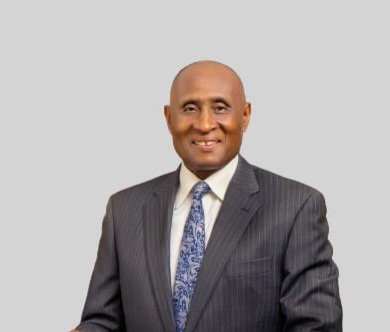The Chartered Institute of Directors Nigeria (CIoD Nigeria) has implemented a series of governance reforms, marking a transformative phase in the Institute’s operations.
These changes, which follow the granting of the Institute’s Charter Status through the signing of the Chartered Institute of Directors Nigeria (Establishment) Act 2023, reflect the Institute’s commitment to best governance practices, improved operational efficiency, and enhanced service delivery to its members and stakeholders.
The new reforms included the dissolution of the executive committee in accordance with the Charter Act while the committee’s responsibilities will now be managed by the reconstituted Committees of the Governing Council.
- UniAbuja: ‘No law requires professorial experience for VC appointment’
- Governor Sani launches hospital, skills centre 1 yr after bomb attack in Tudun Biri
The changes include the merging and recategorization of committees to enhance the efficiency and functionality of the Institute’s governance structure.
President and Chairman of the Governing Council, Alhaji Tijjani M. Borodo, said implementing the new reforms was made possible through the collective vision, effort, and determination of the members, he said.
He said, “The signing of the Charter Act by President Muhammadu Buhari, GCFR, on May 26, 2023, represents a milestone in the history of CIoD Nigeria.
“It is a testament to the dedication and hard work of our members, and it sets the stage for the next phase of growth and development. The governance changes we are implementing will strengthen the structure of the Institute and ensure we continue to deliver value to our members while keeping pace with global standards of governance.”
Other notable changes include the transformation of 14 Policy Committees into Sectoral Groups
“These groups will now report to the Governing Council through the newly restructured Advocacy and Stakeholder Engagement Committee.
“The groups will focus on key sectors including Power & Energy, Oil & Gas, Banking & Financial Services, Health & Social Services, and more,” he added.
The statement said that in compliance with Section 6(2) of the Charter Act, the Governing Council has been restructured to include representatives from various ministries, government agencies, and academic institutions.
The statement added that the organisations now represented on the
Governing Council of the Institute are the Financial reporting Council of Nigeria; The Federal Ministry of Industry, Trade & Investment, The Federal Ministry of Education,Corporate Affairs Commission, Security & Exchange Commission and representative of the Academia
“As part of the changes, only three Past Presidents of the Institute will now sit on its Governing Council,” the President said.
According to the CIoD President, this broader representation is aimed at improving decision-making and governance at the Institute, ensuring that the Council reflects a diverse range of expertise and influences across multiple sectors and they are in line with global best practices, and the Institute believes they will help foster a more effective, inclusive, and forward-thinking governance structure.
Borodo emphasized that these governance changes reflect CIoD Nigeria’s commitment to remaining a leader in corporate governance training, advocacy, and leadership development.
“As we implement these reforms, I trust that your continued support and belief in our Institute will ensure a smooth transition and the continued success of CIoD Nigeria,” he said.

 Join Daily Trust WhatsApp Community For Quick Access To News and Happenings Around You.
Join Daily Trust WhatsApp Community For Quick Access To News and Happenings Around You.